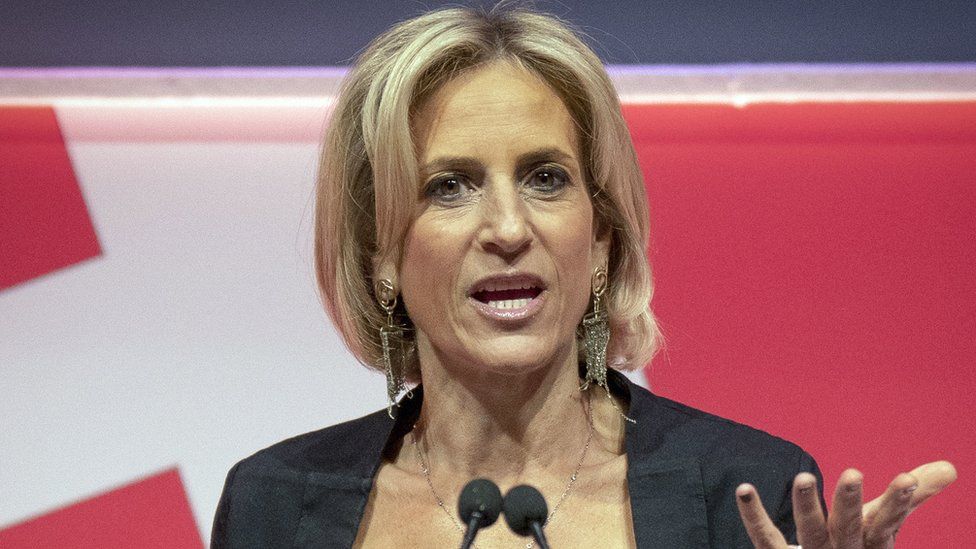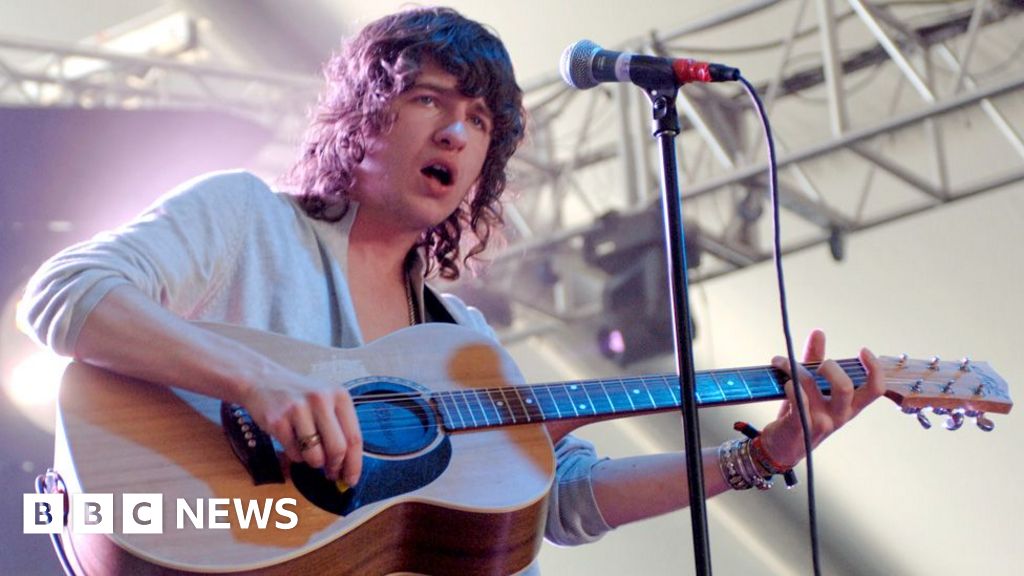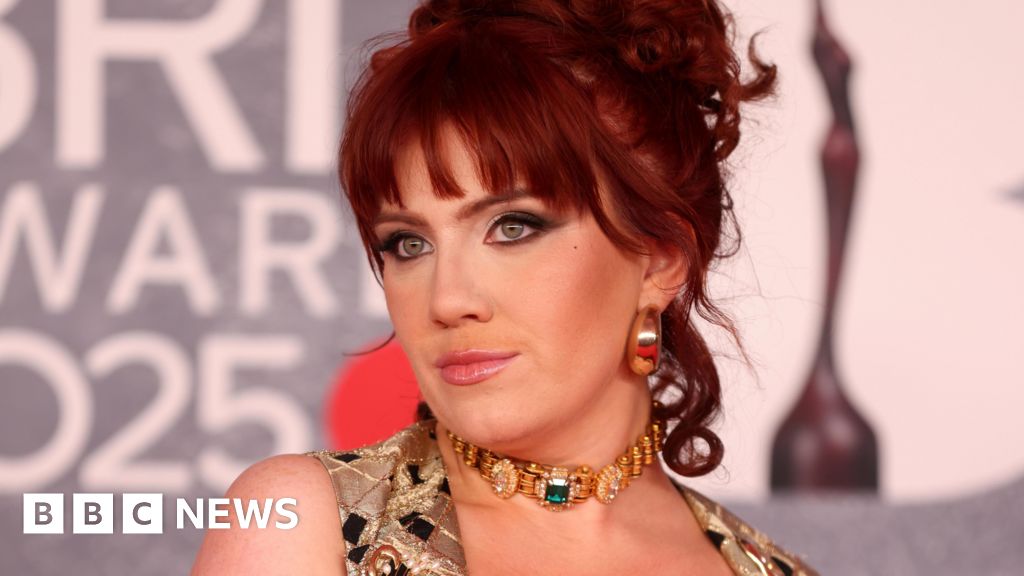ARTICLE AD BOX
 Image source, PA Media
Image source, PA Media
BBC Chairman Richard Sharp has said ex-Newsnight presenter Emily Maitlis was "completely wrong" to suggest the rebuke she received for on-air remarks about Dominic Cummings made "no sense".
Last month in a keynote speech, Maitlis said the BBC's ruling against her was made "without any kind of due process".
She added it may have been "a message of reassurance" to the government, which the corporation has denied.
Sharp said she was "a great journalist" but had put opinions ahead of facts.
In 2020, the BBC said Maitlis broke its impartiality guidelines when she opened an episode of Newsnight by saying that Dominic Cummings, then former Prime Minister Boris Johnson's chief adviser, had "broken the rules" with a lockdown trip to Durham and "the country can see that, and it's shocked the Government cannot".
While giving her keynote MacTaggart Lecture at the Edinburgh TV Festival last month, Maitlis suggested that growing political pressure has led the media to censor itself.
Speaking at a Department of Culture, Media and Sport (DCMS) evidence session on Tuesday, looking into the modern media landscape, Mr Sharp said: "While I thought the issues she raised were worthwhile and very good, she was completely wrong in saying the due process [regarding the Cummings comments] wasn't followed.
"I think probably to my mind that reflected also the fact that I disagree with her view of impartiality, which may mean that she can lead with her own opinions and follow-up with the facts."
Richard Sharp became BBC chairman in February 2021
He added: "The issues around why it was found, both by us and then [broadcasting watchdog] Ofcom subsequently, that we had appropriately addressed the issue was because she led with her opinions.
"And as a great journalist it wasn't that her instincts were wrong, the issue is how the BBC does what it does, which is we have to provide the facts in an impartial way to the audience and allow them to draw their own opinions."
The corporation's director-general Tim Davie, who was also appearing in front of the committee, added that while he thought Maitlis was an "outstanding journalist", he also disagreed on her criticism of the BBC's handling of the Cummings introduction. He was not director general at the time of the ruling.
In her speech last month, Maitlis also suggested a BBC board member, believed to be Sir Robbie Gibb, was an "active agent of the Conservative Party".
Mr Sharp said on Tuesday he was "disappointed" with Maitlis's remarks about Sir Robbie, again saying she was "completely wrong".
He said Sir Robbie, who 'liked' an apparently anti-SNP post on Twitter, was entitled to his view, though he'd "prefer that non-execs refrain from tweeting around controversial or partisan issues". They should, he said, "seek to avoid getting involved in matters of controversy", adding they are not required to, however.
He said he had been informed that Sir Robbie did not in fact like the tweet in question, rather he had accidentally pressed the like button while scrolling through his Twitter feed.
The subject of Joe Lycett's widely-shared appearance on Laura Kuenssberg's new show BBC Sunday morning show also came up.
Image source, Comic Relief
Image caption,Joe Lycett is an English comedian and presenter
The stand-up comedian and presenter pretended to endorse the new prime minister Liz Truss, joking that he was "incredibly right-wing".
While some praised the satire on social media, others were not so impressed and a frontpage headline in the Daily Mail the next day accused the BBC of anti-Conservative bias.
"Laura is exceptional," said Mr Davie, addressing the matter. "We can debate the merits of that particular booking, [but] I don't think it displays BBC bias in the slightest.
"The audience saw it for what it was, by the way".
He continued: "I think by yesterday, with the front page and the headline we had 28 complaints, and they're up to 66 complaints. They saw what it was, it was bemusing."
The director general went on to say the BBC's former political editor, Kuenssberg had "conducted herself in an "exemplary fashion in a slightly difficult situation".
The BBC bosses were answering questions on the same morning Culture Secretary Nadine Dorries announced she was to leave her role, after less than a year, in order to focus on her writing career.
Earlier this year, Ms Dorries announced a two-year freeze of the licence fee and said attention would in due course turn to the BBC's funding model in the longer term.
The licence fee's existence is guaranteed until at least 31 December 2027 by the BBC's royal charter, which sets out the broadcaster's funding and purpose, and lengthy negotiations have already taken place between BBC bosses and the government over a future funding settlement.
Mr Davie said on Tuesday the BBC is under "a lot of pressure" regarding the licence fee and is looking at what the right funding method might be going forward, but stressed he does believe in a public-funding model.
A committee member also discussed BBC sports pundit Gary Lineker and his comments on social media.
Mr Davie said he has had discussions with Lineker over the years about him following BBC impartiality guidelines and feels he has made a "massive improvement to where he was a few years ago".
"I'm very supportive of Gary, I think he's a brilliant presenter, and I think it is work in progress in terms of where he draws the line, but we've had a good conversation, I think he understands the guidelines," he added.

 2 years ago
38
2 years ago
38








 English (US) ·
English (US) ·